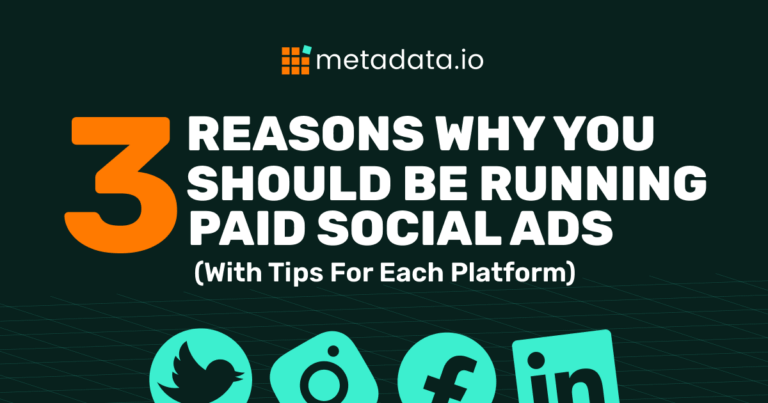Word of Mouth Marketing: How to Make It Keep Happening
We’re exposed to word-of-mouth marketing all the time. We take recommendations from friends for Netflix shows, restaurants and plumbers. Trust is a huge factor. We trust our friends and family, so we’ll take their word over an advertisement.
In fact, people are 90% more likely to trust and buy from a brand recommended by a friend.
Trust is at the heart of WOMM (word-of-mouth marketing). Despite living in a world obsessed with inbound marketing data, 64% of marketing executives believe word of mouth is the most effective form of marketing.
For a B2B tech company, having great products and helpful customer success people is not enough to move the word-of-mouth needle. Building brand trust requires a united company willing to play the long game with customer relationships.
My word-of-mouth wake up call
Even if prospects knock on your door unattributed, they heard about you somewhere.
We recently ran an experiment that opened my eyes to how much of our demand is from word of mouth. I was seeing a surprising amount of unattributed website leads for demo requests and I couldn’t figure out where they came from (Direct / Organic Search). But wherever they came from, they were converting. They were good hand raisers.
To get to the bottom of it, I cold emailed them to ask how they found us. It turns out every one of these unattributed leads that responded to me was a recommendation from somebody.
Some came from an agency partner that has a large social media following. Some were friends or former colleagues of our existing customers who were told to check out Metadata.
When I realized what % of these unattributed leads were word of mouth, it really hit home. I was reminded again that people buy a product because someone they trust recommended it. It’s not a clever display ad or a cool logo that seals the deal. It’s their friends telling them.
The challenge for B2B marketers is that you can’t hack or track word of mouth. There’s no quantifiable silver bullet.
At the same time, you can’t just hope people sing your praises. You can be proactive about WOMM. But it’s more about steady relationship building than any demand generation tactic.
Methods for enhancing WOMM
In my experience, time and patience are required to turn consumers into vocal brand lovers. It’s a long game. Do not expect short-term fixes.
Get the whole company involved in building trust
Companies that are out of sync internally will struggle with positive word of mouth. For WOMM to grow organically, all the major groups in a company need to nurture relationships and help build trust in the brand.
Engineering: Engineers are often on calls with prospects and customers discussing product roadmaps. That’s an opportunity to engage with people sincerely and directly. Be open to feedback and feel comfortable with being honest about the state of the product – good prospects and customers will understand that product development is hard.
Customer success: Customer success helps customers get wins with your product. You are usually one of the main points of contact with customers after the sale. If you’re personable on top of helpful, customers are more likely to spread the word about their successes and your brand (and you!).
Marketing: You should always be genuine in your marketing to establish real, trusting relationships with customers and prospects. Avoid bait-and-switch, flash sale schemes and be honest and authentic. And humor never hurts.
Sales: A salesperson is usually a prospect’s first interaction with a company. If you come off as aggressive, you may not only blow a deal but do damage to word of mouth. It’s important not to value closing a deal over the prospect’s situation. If they don’t have the budget, try to figure out a way to find that budget, maybe not until next quarter. Be flexible and thoughtful to gain a prospect’s trust and it will pay off later.
The C suite: To help word of mouth, the CEO and leadership team should be accessible and in tune with customers. That applies to the content they post on LinkedIn and how they present themselves at conferences and with customers. If the CEO seems aloof, people will assume that cascades down to the rest of the company.
Help customers help you
In addition to consistently cultivating relationships, companies can initiate WOMM by letting customers have a say in the product.
- Before and during your product development, elicit feedback from customers about what new features they want in the next version. This will be personally fulfilling for them. They helped build your product. They’ll brag about it.
- Tap an industry influencer to bang the drum for your company on social media. It always helps to have a well-known figure humanizing your brand to a large audience.
- You can ask customers to leave product reviews on sites like G2, on your own website, or on social media. User reviews often give people the reassurance they need before making a purchase.
Stay positive and don’t burn bridges
Having strong customer relationships is the foundation for WOMM, but even good relationships end.
So keep in mind that even when business relationships are over, they can still pay dividends. You want relationships to be so solid that customers still recommend you when they stop being customers.
It’s no fun when a customer churns or ends up being a bad fit for your product. There will be revenue loss and word-of-mouth marketing will be the last thing on your mind. But always let go of customers with respect and professionalism.
Despite the disappointment, they’ll remember how gracefully you handled the parting of ways and will spread that good word to friends and colleagues.


